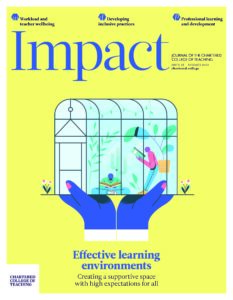Promoting teacher effectiveness through CPD, implementing the design of an online learning environment

5 min read
Tine Hoof, Wouter Buelens, Kristel Vanhoyweghen and Tim Surma
Over the last 20 years, research into evidence-informed approaches to teaching has gained momentum, which has sparked a worldwide increase both in academic (see Roediger and Karpicke, 2018) and practice-oriented publications (see Willingham, 2009). In line with these developments, continuous professional development (CPD) curricula inspired by best-evidence on effective teaching are growing in popularity (see, e.g. the ECF and NPQ frameworks). Educators in all phases of compulsory education are determined to apply instructional strategies backed by scientific evidence. Effective CPD offers an excellent opportunity to enhance teachers' expertise in evidence-informed teaching, improving students' learning. In September 2021 the Centre of Expertise for Effective Education in Belgium launched an online CPD course for primary school teachers based on the practice-oriented publication Lessons for learning: Twelve principles for
Join us or sign in now to view the rest of this page
You're viewing this site as a guest, which only allows you to view a limited amount of content.
To view this page and get access to all our resources, join the Chartered College of Teaching (it's free for trainee teachers and half price for NQTs) or log in if you're already a member.
- Benson R and Samarawickrema G (2009) Addressing the context of e‐learning: Using transactional distance theory to inform design. Distance Education 30(1): 5–21.
- Boelens R, De Wever B and Voet M (2017) Four key challenges to the design of blended learning: A systematic literature review. Educational Research Review 22: 1–18.
- Fiorella L and Mayer RE (2015) Learning as a generative activity: Eight learning strategies that promote understanding. New York: Cambridge University Press.
- Gollwitzer PM and Sheeran P (2006) Implementation intentions and goal achievement: A meta‐ analysis of effects and processes. Advances in Experimental Social Psychology 38: 69–119.
- Muijs D, Kyriakides L, Van der Werf G, Creemers B, Timperley H and Earl L (2014) State of the art–teacher effectiveness and professional learning. School Effectiveness and School Improvement 25(2): 231–256.
- Roediger III HL and Karpicke JD (2018) Reflections on the resurgence of interest in the testing effect. Perspectives on Psychological Science 13(2): 236–241.
- Rosenshine B (2012) Principles of instruction: Research-based strategies that all teachers should know. American Educator 36(1): 12–19.
- Sims S, Fletcher-Wood H, O’Mara-Eves A, Cottingham S, Stansfield C, Van Herwegen J and Anders J (2021) What are the characteristics of teacher professional development that increase pupil achievement? A systematic review and meta-analysis. London: Education Endowment Foundation.
- Surma T, Vanhoyweghen K, Sluijsmans D et al. (2019) Wijze lessen: Twaalf bouwstenen voor effectieve didactiek [Lessons for Learning: Twelve building blocks for effective teaching]. Meppel: Ten Brink Uitgevers.
- Sweller J, van Merriënboer JJ and Paas F (2019) Cognitive architecture and instructional design: 20 years later. Educational Psychology Review 31(2): 261–292.
- Willingham DT (2009) Why don't students like school?: A cognitive scientist answers questions about how the mind works and what it means for the classroom. San Francisco: Jossey-Bass.
- Yeung KL, Carpenter SK and Corral D (2021) A comprehensive review of educational technology on objective learning outcomes in academic contexts. Educational Psychology Review 33(4): 1583–1630.
0
0
votes
Please Rate this content
Subscribe
Please login to comment
0 Comments
Oldest
Newest
Most Voted
Inline Feedbacks
View all comments










